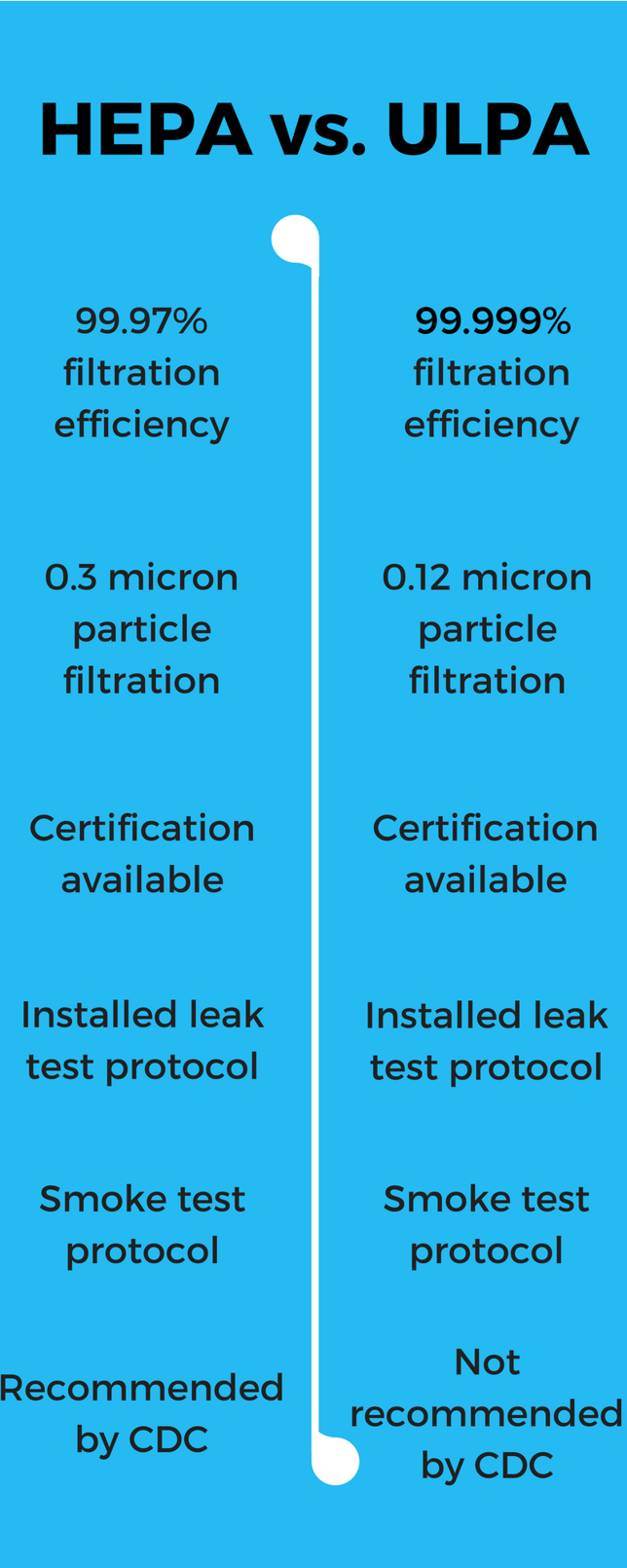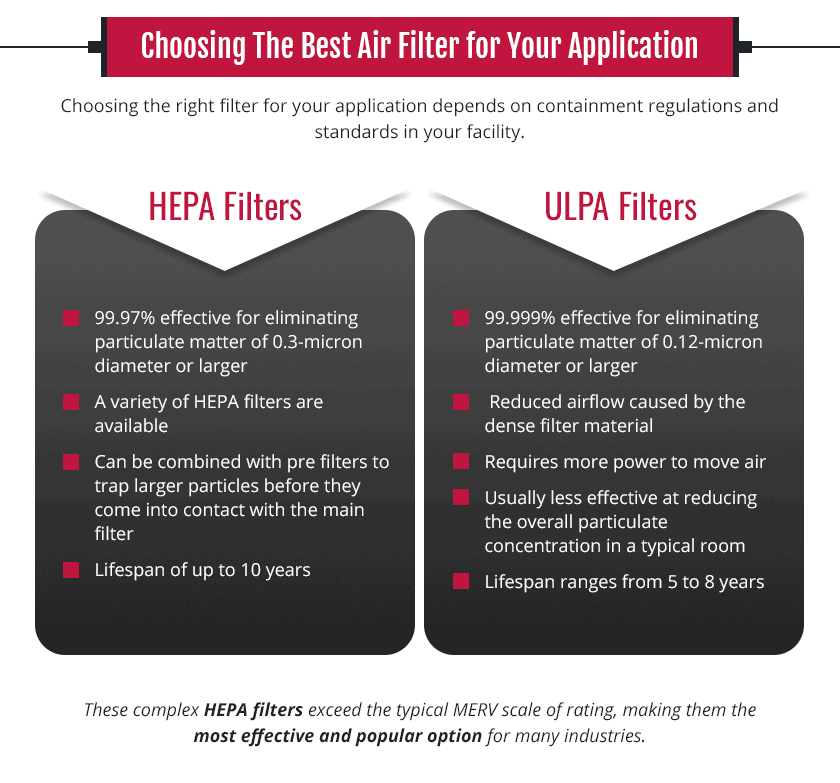When it comes to indoor air quality, having the right air filtration system is crucial. High Efficiency Particulate Air (HEPA) and Ultra Low Penetration Air (ULPA) filters are two commonly used types of air filters. Understanding their differences can help you make an informed decision regarding your air purification needs.
HEPA Filters
HEPA filters are renowned for their ability to capture a high percentage of particles, making them a popular choice for improving indoor air quality. These filters are designed to capture at least 99.97% of airborne particles that are 0.3 microns in size or larger.
One of the key distinguishing features of HEPA filters is their efficiency in trapping smaller particles, such as dust, pollen, pet dander, and mold spores. HEPA filters are widely used in residential, commercial, and industrial settings to remove allergens and airborne contaminants, promoting cleaner and healthier air.

Credit: www.hepacart.com
ULPA Filters
ULPA filters, on the other hand, are designed to offer an even higher level of air filtration. These filters are capable of capturing at least 99.9995% of particles that are 0.12 microns in size or larger. This superior filtration capability makes ULPA filters highly effective in environments that require the utmost cleanliness, such as pharmaceutical facilities, laboratories, and semiconductor manufacturing plants.
ULPA filters are engineered to remove extremely small particles, including viruses, bacteria, and sub-micron aerosols. Their advanced filtration efficiency ensures that the air quality in critical environments remains pristine, minimizing the risk of contamination and ensuring optimal product quality in sensitive industries.

Credit: airinnovations.com
Key Differences
While both HEPA and ULPA filters excel in capturing airborne particles, their main point of differentiation lies in their particle retention capacity. ULPA filters are designed to capture smaller particles with higher efficiency compared to HEPA filters, making them the preferred choice for environments that demand the highest level of air purity.
Another notable difference is the airflow resistance. ULPA filters typically offer higher resistance to airflow compared to HEPA filters due to their denser media and tighter filtration specifications. This can impact the air handling system’s design and energy consumption, making it essential to consider the specific requirements of the space when choosing between the two filter types.
Frequently Asked Questions For What Is The Difference Between Hepa And Ulpa Filters?
What Is A Hepa Filter?
A HEPA filter is a high-efficiency particulate air filter that captures 99. 97% of airborne particles, including dust, pollen, and smoke.
How Does A Hepa Filter Work?
HEPA filters use a dense mat of fibers to trap airborne particles. Air is forced through the fibers, which capture and trap the particles.
What Are The Benefits Of Using A Hepa Filter?
Using a HEPA filter can improve indoor air quality, reduce allergies and asthma symptoms, and trap harmful airborne bacteria and viruses.
Can A Hepa Filter Remove Viruses From The Air?
Yes, HEPA filters can effectively capture and remove viruses from the air, including smaller particles such as those carrying the COVID-19 virus.
Conclusion
Ultimately, the choice between HEPA and ULPA filters depends on the specific air quality requirements of the environment in question. If you are looking to improve indoor air quality in a residential or commercial setting, HEPA filters may suffice. However, for ultra-clean environments that demand exceptional air purity, ULPA filters are the ideal solution.
By understanding the differences between these two types of filters, you can select the most suitable filtration system to create a healthier and cleaner indoor environment for your needs.
Rakib Sarwar is a Registered Pharmacist and a reputed health and wellness blogger. He has a great interest in Air purifiers.
